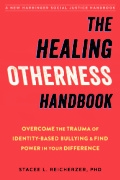March, for much of the U.S. that isn’t Hawaii or South Florida, is a season of dramatic changes. It’s the roller coaster ride between balmy early spring and deep winter cold snaps. In many ways, the dramatic shifts are the story of human emotion. One moment we’re feeling good…make that great! Our disposition is as sunny as that early spring day that requires only a light jacket. Suddenly, the clouds appear. Our mental picture darkens. We’re back in our internal state of darkness and rain, possibly even feeling icy.
The ultimate trickster, March is the Loki of seasons, lulling us into feeling safe and confident that spring is here, then betraying us. We all know about betrayal, whether it was a boss who gave a rosy outlook about our job’s future and then laid us off the next month, a love interest who left us, a friend or sibling who shared a secret of ours. Some of us have deep-rooted stories of betrayal that began in childhood and that continue to disrupt our lives today.
How We Recognize Betrayal
Rationally, we understand that Arctic disturbances don’t equate with the anguish and devastation to our lives that interpersonal betrayal represents. We humans don’t always exist in rational spaces though, do we?
We’re not completely rational because it’s not our makeup and we wouldn’t want it to be. We’re designed to experience feelings and memories. Only…in this case, it’s our memories of an emotional reaction getting triggered by something that’s unrelated. We rationally understand that the weather isn’t truly betraying us; but our memories of betrayal are triggered in the moment, causing momentary anguish.
Our brains evolved to make associations, and emotions guide us to respond accordingly. Remember that whole fight or flight thing folks learned about in Psychology 101 or for from know-it-all sister who took the course? That’s what this is.
If I love you, my mental picture of you comes with a lot of warm fuzzy feelings that can remind me of other warm fuzzy feelings which I associate with safety, tenderness, and a sense of freedom. If I then read a poem, or see a beautiful vista on a hike, or witness my neighbor’s tabby affectionately grooming the other cat (they don’t do this because those cats hate each other; but work with me, here), it may make me think of you. You represent an expression of my love, and I, therefore, associate other loving things with you. If I’m really attuned, I might call you and tell you how the poem, hike, or kitty love made me think of you.
Betrayal works in the same way.
Each time we’re betrayed, we feel it deeply. It shakes our trust in not only betrayers, but in situations that resemble those in which we were betrayed previously. If you were betrayed in a prior relationship, you probably entered your current one with more caution. Alternatively, you may avoid relationships all together due to past experiences of betrayal that result in present-day fear of being betrayed again.
Why We Take March Personally
With its fickle patterns and untrustworthy ways, March is the ultimate betrayer. We develop a lot of reactive emotions to stories like these:
Texas gardener Janice was delighted to see her redbud trees and mountain laurels explode into color. She’d done everything right to protect her trees through the winter and had waited patiently for the reward of spring. That grape soda fragrance of mountain laurel trees was intoxicating, and she smiled as she sipped her Hill Country wine while gazing into her backyard. Then a deep freeze set in and kill all of the beautiful blossoms.
Father of two Daniel had traveled to Kansas City from his home in Rhode Island for business. He’d promised his daughter that he’d be home for her Friday night basketball game of the season. When a Saskatchewan Screamer so severe that the Weather Channel gave it a name (we’ll call it ‘Ophelia’ for our purposes) blew into Chicago, Daniel’s flight through O’Hare was canceled until the following Sunday.
Who among us doesn’t feel rage at the unfairness to Janice and Daniel, helpless victims to the betrayal of March weather?
The Cycle of Our March Weather Response
That reaction we have that’s deeply personal, offended, angry at the weather? In our irrational networks of emotions, we’re reliving every single instant of betrayal we’ve faced in life. Memory networks just know how betrayal feels. In the moment when we’re experiencing it, the weather feels somehow personal. We may follow a cycle that goes something like this:
Phase 1 – We get mad at ourselves for becoming upset about the weather.
Phase 2 – We feel ashamed and sad because we don’t just shake it.
Phase 3 – We make a concerted effort to not allow our moods to be affected by weather.
Phase 4 – We see the weather report that another storm is on the heels of the one that just killed our plants or dumped a foot of snow on us.
Phase 5 – We scream expletives or begin weeping uncontrollably. Anger has moved to a sense of helplessness.
Sounds like reactions to other forms of betrayal to me.
Whereas the perfect fix would be to spend March in a warmer clime, that’s not always the option. Obviously, weather passes. Blooms that are killed by freezes are sad; particularly for the gardeners who patiently tend the plants and trees on which they grow. Moms and dads make it home and make it up to their kids. Heavy snow is an inconvenience to everyone outside of the ski resorts and snow removal industry; but not usually much else.
Yet, a season for transition is upon us in March. Much is shifting and awakening as the longer days warm the earth and air. I’ll be tracking the spring from my home in New England, writing of things that the changing spirit of the season moves in me.
Hope April Fool’s Day doesn’t bring another blizzard like we had in ’97.
Thanks for reading my blog. Follow me on Facebook, Twitter, and LinkedIn.


